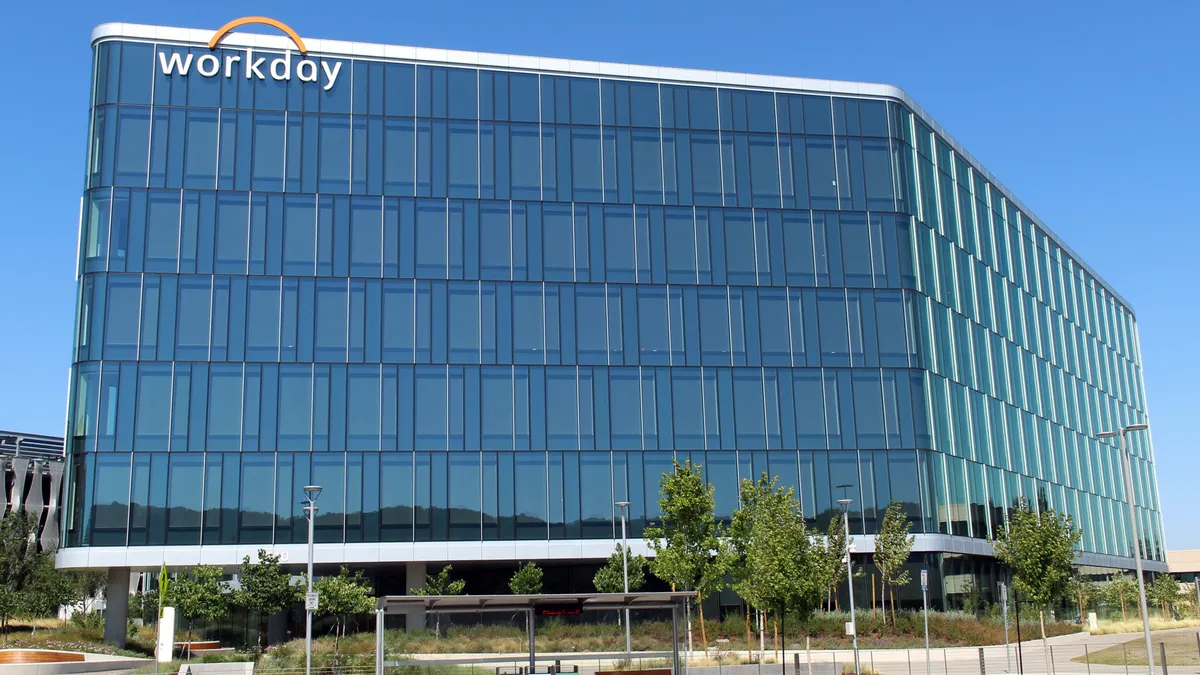Dive Brief:
-
Enterprise software company Workday is rolling out a new virtual assistant for finance and human resource workflows as it seeks to offer users a “reimagined artificial intelligence-powered experience,” according to a recent announcement.
-
The new tool, known as Workday Assistant, is part of the company’s broader “Illuminate” framework for transforming corporate finance and HR functions, Terrance Wampler, group general manager for the office of the CFO at Workday, said in an interview.
-
“We think it’s game changing,” Wampler said.
Dive Insight:
The new virtual assistant is designed to help users complete complex finance and HR processes by addressing their questions using “natural-language” responses and in real-time, according to a Sept. 17 press release.
“It could be an employee trying to do an expense report, or someone working on a supplier invoice,” Wampler said. The tool is “very similar” in concept to popular AI companions like Microsoft’s Copilot, he said.
Workday Assistant is currently being used by early-adopter customers and will be generally available in early 2025, the release said.
Wampler said the company’s pricing strategy for the tool will depend on how much value that it’s providing to the customer.
“We’re not so much charging for the AI component” itself, he said. “What we’re charging for is the capabilities that it delivers. If we fully transform a business process, there’s likely going to be an additional” cost.
The announcement comes as enterprises are seeing an explosion of AI-enabled software tools targeted at a wide range of business functions, including the office of the CFO.
Microsoft has made it a top priority to layer AI across its many offerings. Last year, the software giant announced that it was incorporating a new set of generative AI capabilities into its enterprise resource planning platform known as Dynamics 365. Early this year, it unveiled Copilot for Finance, a virtual assistant for finance teams, after introducing similar AI companions for professionals in sales and customers service.
“By infusing AI across every layer of our tech stack, we are winning new customers and helping drive new benefits and productivity gains,” Microsoft CEO Satya Nadella said during a January earnings call.
Workday announced its new virtual assistant and other AI offerings last month during its annual Workday Rising conference for customers and partners.
The AI push is about “more than just doing things faster,” Workday CEO Carl Eschenbach said during a keynote speech for the event, which was held in Las Vegas, Nevada. “It’s about doing things completely different. Imagine Workday Illuminate and our new AI solutions completely and autonomously adapting, learning and changing your business process.”
He said the effort is intended to “assist and augment humans, not to replace them.”
Besides Workday Assistant, the company also introduced four new “AI agents,” including a tool known as Optimize, which is designed to streamline business processes by identifying “bottlenecks, inefficiencies, and deviations from best practices.” For example, Optimize can automatically flag and fix issues in the employee onboarding process, the company said in a separate release.
The AI agents that were unveiled “are the first of many to come from Workday as the company seeks to radically simplify business processes for end users and elevate humans at work,” the release said.
Workday made its debut on the Fortune 500 list this year, allowing it to rank among the largest U.S. companies by revenue. It generated a total of $2.1 billion in revenue during the second quarter, an increase of 16.7% compared with the year-earlier period.














